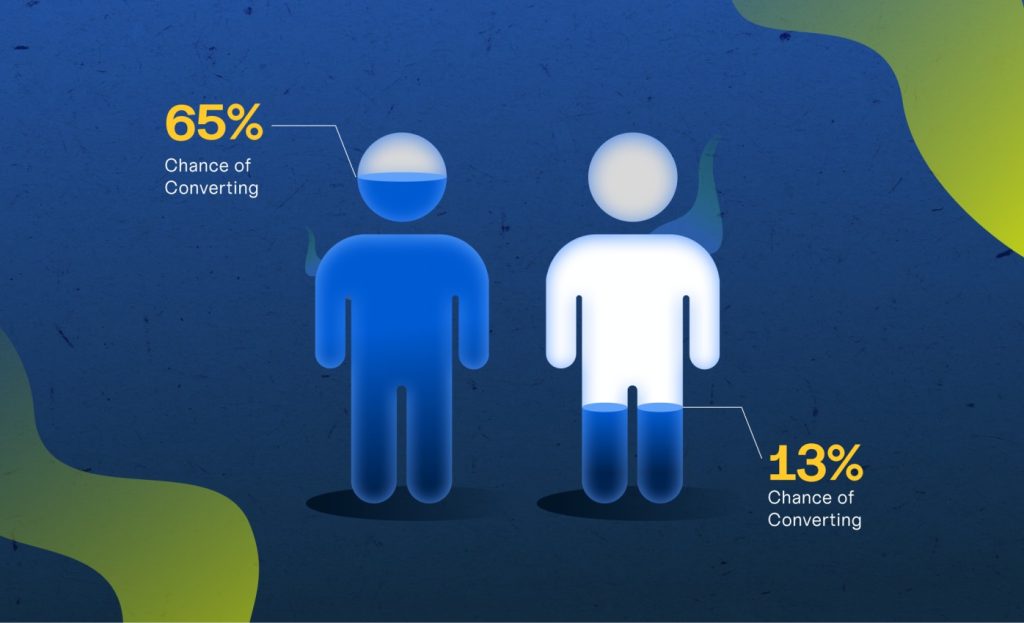When a recession hits, most business owners start looking for ways to cut costs and lower overhead. Because we fail to realize that companies who curtail their marketing efforts during an economic downturn will actually end up compromising their long-term market share. Hence, it is important to continue marketing your business, so you don’t jeopardize your long-term growth.
Whether or not the economy slides into a mild recession or a depression, you shouldn’t halt your brand marketing. While marketing during a recession may require you to fine-tune your marketing plan to blend in adaptive and innovative ideas, it shouldn’t push you to withdraw your advertising budget.
And if you get tempted to cut back out of fear due to economic uncertainty, this Henry Ford quote should make you rethink your decision:
“A man who stops advertising to save money is like a man who stops a clock to save time.”
Henry Ford
How Does a Recession Affect Your Marketing Efforts?
During a recession, there’s a dip in economic activity as consumers prioritize purchases and decrease spending. A drop in consumer spending translates to fewer sales and longer sales cycles for your business products or services. It may prompt you to cut back on your advertising spending because you may not be getting a good return on investment (ROI) as you did before the downturn.
This happened during the Great Recession of 2008 when the U.S. advertising market declined by 13% as businesses spent less on ads. However, slashing your advertising budget isn’t a gainful strategy, knowing the economy will bounce back after the recession. Instead, you should find more dynamic and innovative marketing strategies to survive a recession or even profit from it, as we discuss below.
6 Tips for Marketing During an Economic Downturn
Recessions have a silver lining you can exploit and come out on top when it’s over. You must be strategic and resilient to capitalize on an economic downturn and not allow the fear of uncertainty to drown out your marketing campaigns. Here are six tips to inform you about marketing strategies for recession.


Consider an Adjustment to Your Budget Allocation for Advertising Spend
Reviewing your advertising spending is necessary during a recession. But you should approach it with a reallocation mindset rather than an austerity outlook. When the economy is in decline, many businesses tend to slash their advertising budget, making the ad market less competitive. This is the gap you should cash in on by rechanneling your budget towards the most valuable ad platforms in your industry.
But how can you assess the most profitable ad channels to invest in from hundreds of available platforms? By leveraging DSP programmatic advertising technology. A demand-side platform (DSP) allows you to automatically buy ad space for your marketing campaigns. During a recession, you can buy some of these upper-crust ad platforms at discounted rates.
That’s why it’s vital to review your ad budget allocation so that you can redirect money to ad platforms likely to yield a higher marketing ROI. Additionally, you’ll get a higher share of voice, as most of your competitors are likely to curb their marketing spending. You may even find it viable to supplement your advertising budget to buy more premium ad space and reach a bigger audience.
Focus On What Type of Customer You Are Targeting
If your recession marketing isn’t highly targeted, you’re throwing already scarce money down the drain. Remember, you’ll be working under tight budget constraints, and your investors will be hesitant about spending money. Thus, you won’t have the luxury of adopting spray and pray marketing techniques even in their mildest form.
A more result-driven approach would be optimizing your paid search campaigns. Well-optimized paid search campaigns help you target prospective customers with a high buying intent. Marketing to customers who’ve already started the buyer’s journey is more cost-effective and yields more leads. It’s about defining your buyer personas and targeting them with your marketing message.
If you’re utilizing programmatic digital advertising, it’s easier to execute targeted marketing campaigns since programmatic tech helps you place ads on platforms where your target customers are.
Refine Your Marketing Strategy by Analyzing Your KPIs
Analyzing your marketing key performance indicators (KPIs) helps you set new ones that are more in tune with recession marketing. With a recession, you expect longer sales cycles and lower overall sales. It means you cannot underpin your marketing strategies for recession following old KPIs as you would end up short-selling your entire marketing campaign.
For instance, your customer acquisition costs will be higher during an economic slump as consumer confidence is typically low. Thus, it would be inexpedient to continue with your former customer acquisition KPIs.
By fine-tuning your KPIs to match the new economic conditions, you’ll be better placed to framework a winning marketing strategy. From then on, you can track your new KPIs and accurately gauge the success of your marketing campaign on the go.
Use This as an Opportunity to Increase Product Offerings
Although consumers react to recessions differently subject to their spending power, curbing expenditure is the most prevalent reaction across the board. This means you have to work harder to convince them to overlook their financial uncertainties and purchase your products. The best way to persuade recession-hit consumers is to unveil new product offerings with extra value-adds.
Investing in product development during an economic downturn gives you two significant advantages.
First, you get to one-up your competitors who cut back on their research and development budget. And if your product innovation generates substantial cost savings or adds more value, you may easily win over value-conscious customers.
Secondly, new product offerings will supercharge your marketing after the recession eases. When the economy recovers after a downturn, consumers are more willing to spend on new products. An increase in consumer spending power enables you to upsell, cross-sell, and market to new customers more effectively.
Working on product development during a recession allows you more time to innovate without consumer or competitor pressure. New product offerings help your brand stay top of mind with customers. Even if they don’t purchase during the recession, they’re more likely to buy once their economic hardships alleviate.
Sell To Your Current Customer Base
Marketing to your existing customers is easier and less costly to execute. This makes sense when operating under a strict budget and when consumers have constricted their spending. Before you consider targeting new customers or increasing your market share, strengthen your stranglehold on your customer base.


Existing customers are your most valuable asset in tough times. You should treasure and keep them happy by upscaling your customer experience quality. For instance, you may choose to design loyalty programs to reward current customers. Such programs may also bring about up-selling or cross-selling opportunities. They can also win you referrals.
Think about it. If you go over and beyond to satisfy your core customers during a recession, they’ll most likely talk about it to their peers who may not be enjoying the same quality of customer experience. This would earn you free referrals, which are a gold mine in a declining economy.
Take a Value-Based Marketing Approach
Value-based marketing is essentially practicing what you preach. It goes a long way in winning consumer confidence which normally drops during an economic recession.
According to Forbes, the purchasing confidence in high-value items like homes or cars, dropped by six points between May and June 2022, driven by recession fears among American consumers.
This means your marketing strategies for recession must focus on establishing trust with your customer base first, before pushing your sales message. And this is where adopting a value-based marketing approach saves the day. Because most consumers cap their spending during a recession, they’ll probe your product’s value more keenly than before.
Thus, you must expressly communicate the value-adds your product will deliver to ignite their purchase intent. Making your recession marketing campaign customer-centric is all important when marketing to reluctant consumers. After demonstrating your product’s value in your marketing campaign, ensure that the product lives up to your billing.


